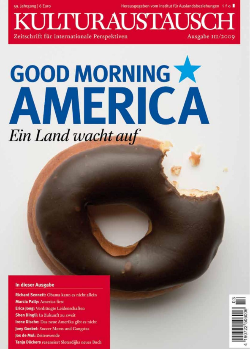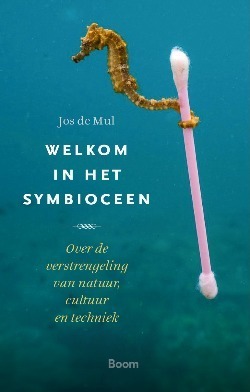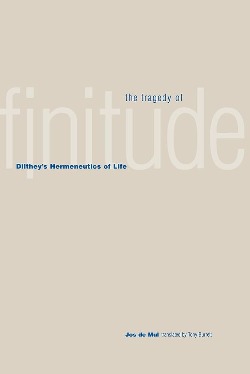Echo's van een laatste God
Jos de Mul. Echo's van een laatste God. Filosofie & praktijk Jrg. 28. nr. 1 (2007): 16-24.
约斯·德·穆尔,“禅宗与电脑维护的艺术”,《东方丛刊》2008年第1期,总第63期 (Zen and the Art of Computer Maintenance)
Jos de Mul. 约斯·德·穆尔,“禅宗与电脑维护的艺术”,《东方丛刊》2008年第1期,总第63期 (Zen and the Art of Computer Maintenance. Dongfang Congkan, Vol. 63 , 2008 No. 1).
Onzingeving. Moedwil en misverstand in Hermans' Wittgenstein-interpretatie
Jos de Mul. Onzingeving. Moedwil en misverstand in Hermans' Wittgenstein-interpretatie. De Gids (Mei 2008), 451-459.
Van de doden niets dan goeds. Voor de filosoof W.F. Hermans maak ik graag een uitzondering. Kan de kwaliteit van Hermans’ literaire werk moeilijk worden overschat, zijn verdiensten als lezer, interpreet en vertaler van filosofische werken worden naar mijn mening door zijn bewonderaars schromelijk overschat. Op filosofisch terrein slaat hij de bal vaak en hartstochtelijk mis. Ik zal deze stelling staven door een korte beschouwing over Hermans’ door moedwil en misverstand gekenmerkte lectuur van Wittgenstein. Ik zal voorts betogen dat deze smalle, door het neo-positivisme geïnspireerde interpretatie van Wittgenstein Hermans weliswaar heeft geïnspireerd tot een aantal literaire meesterwerken, maar dat deze de auteur tevens, en onvermijdelijk, aanzette tot de verloochening van de betekenis van de literatuur, en daarmee van zijn eigen levenswerk. Ten slotte zal ik laten zien dat deze verloochening een belangrijke bron vormt voor Hermans’ literaire zelfhaat.
De Homo erectus à Homo zapiens : le Cyber espace pour les Darwinistes
Jos de Mul. De Homo erectus à Homo zapiens : le Cyber espace pour les Darwinistes. Sens [public] 7-8: L’Internet, entre savoirs, espaces publics et monopoles. (Septembre 2008), 127-144.
[荷兰]约斯·德·穆尔:《数字化操控时代的艺术作品 (The work of art in the age of digital recombination)
Jos de Mul. [荷兰]约斯·德·穆尔:《数字化操控时代的艺术作品》,吕和应译,《学术研究》(广州),2008年第10期,第132-140页 (The work of art in the age of digital recombination", translated by Lü Heying, Academic Research Journal (Guang Zhou), 2008, No.10, p. 132-140.
约斯·德·穆尔 (荷兰 鹿特丹 伊拉斯谟大学,国际美学会主席)
吕和应 译 (复旦大学历史系 200433)
1. 导论
艺术家总是在利用媒体(media),不管是那些创作壁画的史前绘画者,还是那些依靠计算机技术工作的新媒体艺术家。在此处作广义使用的媒体,意即“传达信息的方式”[1],它们决不是可有可无的手段而已。从康德的哥白尼革命起,我们知道了,经验是由感性的诸形式和人类知性的诸范畴组成和构造的,而在哲学界所谓“语言学和媒体转向”之后,人们普遍认为,媒体对塑造人类的心灵和经验起着关键作用。媒体是各种界面,不仅是我们与世界(命名)、还是我们与同伴(交流)以及我们与自身(自我理解)的中介。审美经验也不例外:艺术媒体也是不仅构造艺术家的想象力、也是构造艺术品和审美接受的界面。[2]
The Tragedy of Finitude. Dilthey's Hermeneutics of Life
Jos de Mul. The Tragedy of Finitude. Dilthey's Hermeneutics of Life. Analecta Hermeneutica, Vol. 1, no. 1 (2009), 248-251.
The publication of substantial parts of Wilhelm Dilthey’s philosophical legacy in volumes 17 (1977), 19 (1982), 20 (1990), 21 (1997), and 23 (2000) of his Gesammelte Schriften necessitates a thorough reinterpretation of his entire philosophy. The Tragedy of Finitude. Dilthey''s Hermeneutics of Life aims to contribute to such a reinterpretation by reconstructing the ontological foundation of Dilthey’s hermeneutics of life.
Denken aan de Maas
Jos de Mul. Denken aan de Maas. (Inleiding tot themanummer "Wijsbegeerte in Rotterdam").Tijdschrift voor Filosofie, nr. 71 (2009) 5-9.
Toen ondergetekende, na wijsbegeerte te hebben gestudeerd in Utrecht en Amsterdam en promotieonderzoek te hebben verricht in Nijmegen, in 1988 als universitair docent wijsbegeerte aan de Erasmus Universiteit Rotterdam (EUR) werd benoemd, behoorde de in 1973 gestichte Faculteit der Wijsbegeerte tot de jongste en - met een instroom van krap twintig studenten - kleinste filosofische faculteiten van Nederland. Ook met betrekking tot het onderzoek werd er door de ‘grote zussen’ soms wat meewarig naar de jonge telg gekeken. Twintig jaar later is de Rotterdamse faculteit wijsbegeerte uitgegroeid tot een van de grootste en – volgens de meest recente visitatierapporten Onderwijs (2003) en Onderzoek (2005) - beste van Nederland. De jaarlijkse instroom van nieuwe studenten is gestegen tot honderdveertig en de faculteit is reeds geruime tijd opvallend succesvol in het verwerven van onderzoeksubsidies, met name bij NWO. De onderzoekers publiceren in prestigieuze, op vakgenoten gerichte tijdschriften en boekseries, maar zijn ook opvallend present in culturele tijdschriften en dag- en weekbladen en op het internet, radio en tv.
Zeitenwende. Wie die digitale Revolution unsere Wahrnehmung von Geschichte verändert
Jos de Mul. Zeitenwende. Wie die digitale Revolution unsere Wahrnehmung von Geschichte verändert. Kulturaustausch. Zeitschrift für internationale Perspektiven. 59. Jahrgang, no. 3 (2009), 76
 Der Computer ist eine Zeitmaschine. Er verwandelt unsere Wahrnehmung und er verändert unser Verständnis von Zeit. Mehr noch: Er untergräbt unser historisches Bewusstsein. Die digitale Welt revolutioniert unsere Zeiterfahrung.
Der Computer ist eine Zeitmaschine. Er verwandelt unsere Wahrnehmung und er verändert unser Verständnis von Zeit. Mehr noch: Er untergräbt unser historisches Bewusstsein. Die digitale Welt revolutioniert unsere Zeiterfahrung.
Des machines morales
Jos de Mul. Des machines morales. Cités (Dossier: Internet et la société de contrôle : le piège), no. 39 (2009), 27-38.
Des machines morales
Du fait de sa programmabilité, l’ordinateur est souvent qualifié de machine universelle. Si la machine classique est la représentation d’un programme unique et spécifique, l’ordinateur est un mécanisme qui représente physiquement n’importe quel programme installé comme une procédure d’exploitation parmi d’autres possibles. En raison de cette versatilité et de cette flexibilité fondamentales, l’ordinateur peut être utilisé d’innombrables manières, y compris dans le domaine de l’action morale. Il est impossible de donner ne serait-ce qu’une vue d’ensemble de ces possibilités. C’est pour cette raison que je me contenterai d’étudier ce que je considère comme les trois types fondamentaux de délégation du jugement moral et de l’action aux ordinateurs. Ces trois types fondamentaux sont présentés dans un ordre qui vise à montrer la diminution progressive de l’autonomie morale de l’homme et l’accroissement constant de l’autonomie morale des ordinateurs.
Database Architecture: Anthropological Reflections on the Art of the Possible
Jos de Mul. Database Architecture: Anthropological Reflections on the Art of the Possible. The Journal of Asian Arts & Aesthetics. Vol.3, no.2 (2009), 1-14.
Abstract: In 1956, the Dutch artist Constant Nieuwenhuys started working on a visionary architectural proposal for a future global society; he didn't stop for almost twenty years. New Babylon was elaborated in an endless series of models, sketches, etchings, lithographs, collages, architectural drawings, and photo collages, as well as in manifestos, essays, lectures, and films. New Babylon envisages a global society of total automation in which the need to work is replaced with a nomadic life of creative play, in which traditional architecture has disintegrated along with the social institutions that it propped up. Unlike most other representatives of the counter culture of the 1950s and 1960s Constant fully embraced technological progress: "Technology is the indispensable tool for realizing an experimental collectivism. To seek to dominate nature without the help of technique is pure fiction, as is collective creation without the appropriate means of communication. A renewed, reinvented audiovisual media is an indispensable aid. In a fluctuating community, without a fixed base, contacts can only be maintained by intensive telecommunications" (Constant, 1974).
However, it is not only because of the use of "intensive telecommunications" and computers that New Babylon prefigures the world of cyberspace. It is also, and more profoundly, the flexible database-like structure of New Babylon. The dynamic, endless recombination of architectonical elements that characterize New Babylon expresses the database ontology that rules our present world. It will be argued that "database architecture" of New Babylon foreshadows the ambiguous qualities of "recombinant global urbanism."
Key words: Architecture, Database, Ontology, Constant, Recombinant Urbanism
约斯·德·穆尔 , 激进浪漫主义 (Radical romanticism)
Jos de Mul. 约斯·德·穆尔 , 激进浪漫主义 (Radical romanticism), in: 社会科学战线 (Social Science Front). 年第3期 (Issue 3, 2010), 第227-231页.
摘要: 在很多人看来 , 浪漫主义应当作为一个批判对象而存在 , 因为在本质上它是一种反启蒙 , 对扎 根于启蒙运动的现代性和民主文化构成了永久的威胁 。 文章认为 , 那些通常被归罪于浪漫主义的恶行事实 上并不是根源于过度的浪漫主义 , 而是由于浪漫主义的欠缺才发生的 , 浪漫主义并不追求绝对 , 它已经意识到绝对是一个不可企及的目标 。 也正是由于浪漫主义对待绝对的这种态度 , 使它成为介于现代性与后现代性之间的一种立场 。 如果说现代性以追求绝对的热情为特征 , 而后现代性以对这种追求的反讽为特征 ,那么 , 浪漫主义就构成了现代性的热情和后现代性的反讽之间的一种 “ 震荡 冶, 它对于保持二者之间的平衡是至关重要的 。 技术崇高( technological sublime ) 是现代性的合理结果 , 它的效应对于人类而言是喜忧参半的 。 在技术崇高咄咄逼人的现时代 , 艺术虽然不足以拯救我们 , 但是它可以使力得到舒缓 。 关键词: 激进浪漫主义 ; 艺术 ; 崇高 中图分类号: B835摇 文献标识码: A摇 文章编号: 0257-0246 ( 2010 ) 03-0227-05










